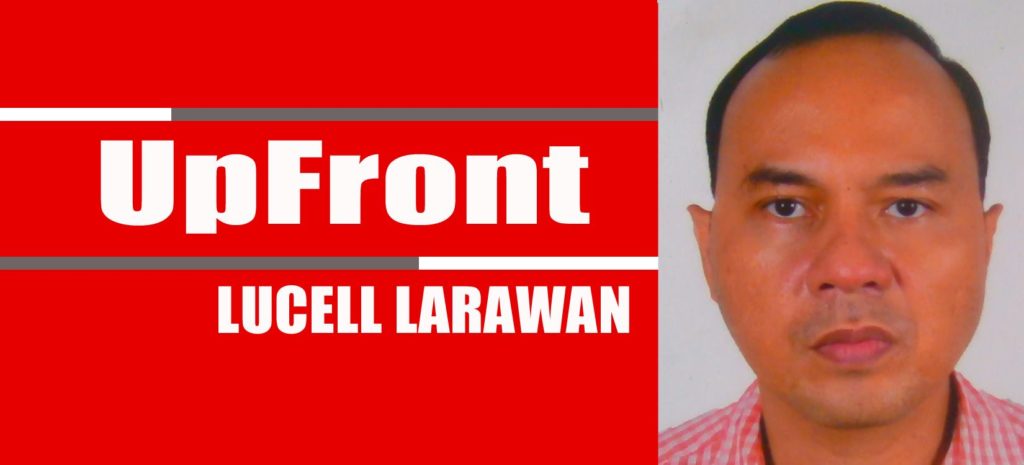
DEALING with corruption in the government is difficult. One has to face a lot of bureaucratease (spelling intended) before one gets justice.
But since corruption in the government is every Boholano’s painpoint or problem they wish to avoid, the administration of governor Aris should make his anti-corruption drive a priority that resonates with the public. This is the reason for creating the Office of the Governance Accountability and Review (OGAR) — what has just been launched days ago.
A courageous move
This is a bold move. No governor in Bohol thought of this idea.
Yet, is this necessary?
Because this is one of governor Aumentado’s campaign promises, we expect the leader to deliver. And this OGAR launching should make a lasting momentum in his term.
While many LGU leaders in the country would not be concerned about rampant corruption in the government, the province’s chief wants to fight. There are leaders who fiddle while we burn; however, this does not describe the current governor. As the saying goes, doing nothing about corruption would mean becoming an accomplice. So, the chief shepherd should separate the weeds from the ube kinampay. They cannot co-exist.
The purpose of OGAR
During the launching of OGAR, the governor remarked: “OGAR is created primarily to fulfill a major campaign promise I raised during the campaign period, which is a platform of clean governance and prioritizing the welfare of the Boholano first or the battle cry of ‘Limpyong panggobyerno ug unahon ang Bol-anon.’”
There is a reason for governor Aumentado to unleash the whip. In the past, there were stories of the big guns cooking up the meat of the people. In the Philippine setting, many corrupt officials get out scot free. Some may be discharged from duty – yet with the millions they stole away. When his predecessor sat at the helm, there was news about questionable transactions such as the purchase of vehicles from other provinces and off the books quarry collections by Ivan, among others. People are tired of this.
Whether this anti-corruption office is selective to the past administration, the governor reminds all constituents of the capitol that this also applies to them.
They should be watchful, too. The system where security of tenure leads to abuses need a counter measure.
Structure of OGAR
Whether OGAR can veer towards its purpose depends on its team. Leoncio “Jun” Evasco, Jr. leads this anti-corruption office, while Atty. Neil Ochoco leads the six lawyers. The team also includes former mayor Dan Lim, social media influencer Willie Ramasola, retired judge Suceso Arcamo, retired judge Gabriel Ingles, Atty. Jordan Pizzaras, and retired fiscal Macario Delusa.
Some implications
The creation of OGAR reflects the values of the current administration, which the Boholanos had supported and banked on when they elected the governor. Initially, some misconstrue this as a vindictive action towards political nemesis. Yet, what is clear: all current employees of the capitol are included in the drive.
We will see. It’s too early to say.
The province needs to consider what the people of Bohol really want regarding starting and sustaining the momentum. Thus, creating this office is urgent.
Based on experience, it took some time for the case of former mayor Lim to move forward against the former governor in the Office of the Ombudsman. The reason: the Ombudsman has to send an investigating team of lawyers to evaluate the case before it can move further. That is why it takes time.
The administration can reduce the probability of delaying cases through OGAR. The office helps build a more robust case. An investigating team from the said office goes out to collect data with the support of the governor. No office one can refuse records or evidences. After an investigation, the office makes a collegial decision. This makes it easier for a well-grounded case to move to the specific agency where it is filed.
According to OGAR head Evasco, the office focuses on irregular acts within the capitol only. One thing to ponder is if he widens his scope, the office cannot handle the volume of work and might spread himself too thinly. But if he focuses on the provincial government offices, he can do the first housekeeping, especially if tainted in the previous years. It is difficult for anyone to govern the province if there had been out-of-the-books transactions that made the people abhor previously. Thus, a leader should cleanse the system before he can claim about “limpyong panggobyerno”.
The governor remarked to all employees of the capitol: “Apil ta ani… kay uban naghimo na ug naandan.” Gleaning from this statement, a clean government can only take place with clean employees.
Bad influences should go away. These contaminants are risky to hang around with. And the governor cannot tolerate scawalags in the government.

